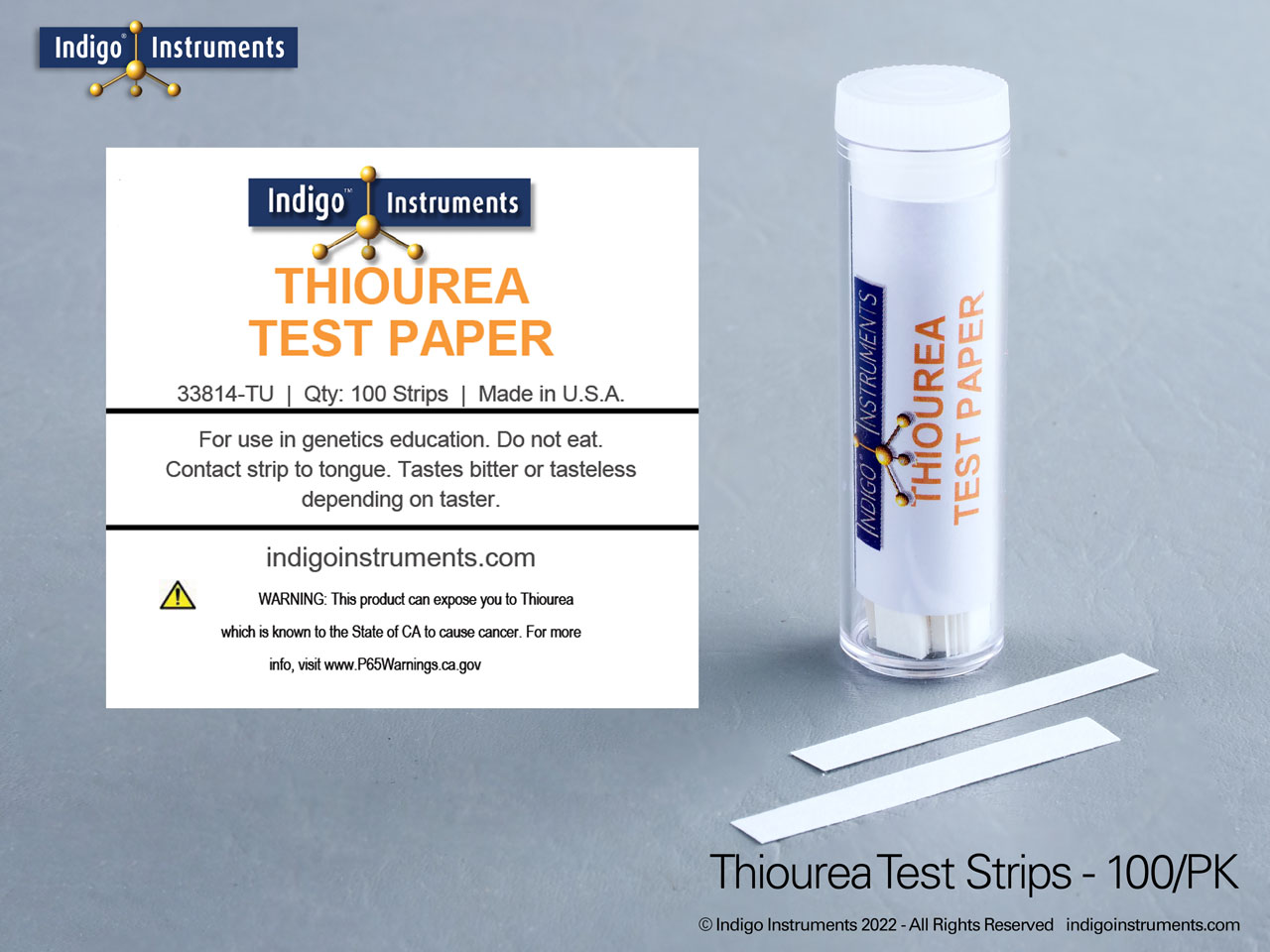Thiourea Taste Test Strips
SKU: 33814-TU
Thiourea taste strips identify inherited bitter-taste sensitivity across multiple TAS2R receptors. Ideal for genetics labs, food science education, and super-taster testing.
Indigo® thiourea taste test strips reveal genetically inherited bitter-taste sensitivity across a broad panel of TAS2R bitter taste receptors. Unlike PTC, which mainly activates TAS2R38, thiourea triggers multiple receptors, making it highly valuable for biology teaching labs that explore polygenic traits, taste perception, and Hardy-Weinberg population genetics. Thiourea is one of the three classic compounds used in supertaster experiments, providing clear population-level variation in “taster,” “weak taster,” and “non-taster” responses.
